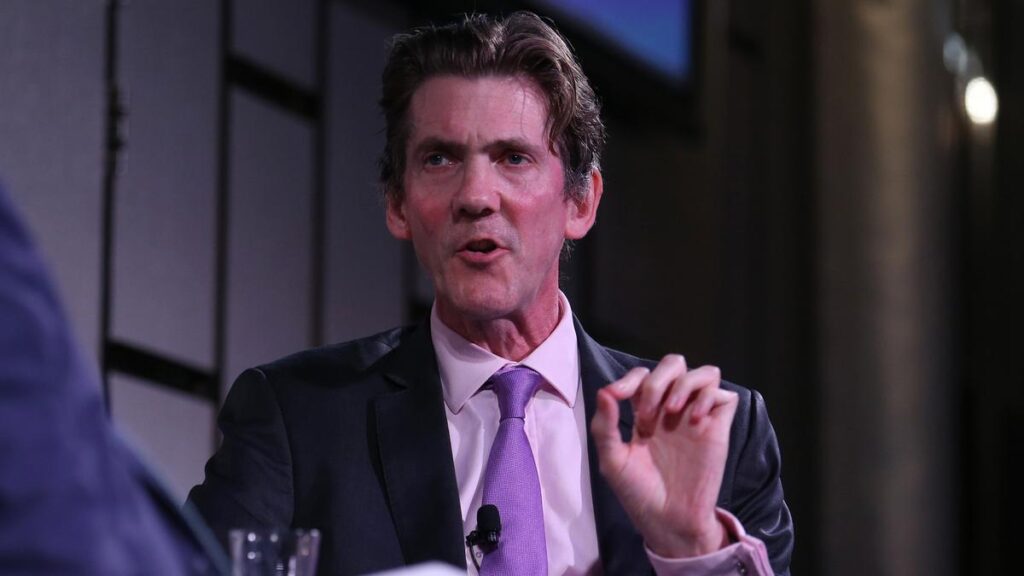Australia’s quarterly inflation outcome this week was close to the Reserve Bank’s expectations, deputy governor Andrew Hauser said, while adding the board is debating the extent of labour market tightness.
In a fireside chat at the Barrenjoey Economic Forum in Sydney on Thursday, the RBA’s No.2 official said “the data yesterday was very welcome”, adding that the 2.7 per cenr annual trimmed mean number was “very much as we had expected”.
The RBA wrong-footed investors earlier this month by keeping borrowing costs unchanged at 3.85 per cent against widespread bets on a cut. Governor Michele Bullock later said the board wanted to see the quarterly consumer price data for confirmation that pressures were abating.
Official data on Thursday showed all measures of inflation cooled further last quarter. That’s bolstered bets for the central bank to deliver its third interest-rate cut for the year as early as its August meeting.
Mr Hauser was also asked about the state of the labour market. He opened by reiterating that the June increase in the jobless rate to 4.3 per cent from 4.1 per cent meant it was exactly where the central bank predicted in its most recent forecasts. The RBA will release an updated outlook next month.
“There’s a lively debate about exactly how tight the market is, and we have that debate on the board, and we have it outside the board and I think that’s a good thing,” said Mr Hauser, who is the first foreign official to join the RBA’s top ranks.
“There are different views on the board about exactly how tight the labour market is but on any measure unemployment is historically still very low.”
Mr Hauser said businesses are still struggling to find the right staff. “So whether you call that tight or full or whatever you might call it this is a labour market that is close to whatever full employment means.”
Economists anticipate three more rate reductions from the RBA between now and early 2026, according to the median estimate in a Bloomberg survey.
Australia’s economic momentum remains subdued with consumer confidence and household spending tepid. Global uncertainty is also elevated in the run-up to President Donald Trump’s tariff deadline on August 1.
Trade uncertainty has been weighing on business investment and prompting firms to rethink hiring plans, economists say. Even though Australia got off lightly with a 10 per cent baseline tariff rate, as an export-reliant economy its fortunes are heavily geared to those of its trading partners.
“Real incomes have been very weak,” said Mr Hauser, adding that there is also a debate on the board about how much momentum there is in the economy at present.
“There are reasons for optimism for the future,” he said. “One of which is obviously the real income growth really has begun to grow quite strongly now.”
Mr Hauser, who ended a 30-plus year career at the Bank of England to move to Australia in February 2024, said the goal of policy is to try to keep the economy “close to balance,” with inflation near the midpoint of the RBA’s 2 to 3 per cent target and employment at its maximum sustainable level.
“That won’t be an easy thing to pull off,” he added.
The deputy governor said in response to a question that the status of public appearances and speeches by the RBA’s independent board members remains a work in progress.
“It will be important when individual members speak, just as it is when I speak and the governor speaks, that we don’t identify the views of other individuals or indeed of ourselves,” he said.
“So the challenge will be to ensure that we do throw light onto the range of debates in the economy without breaching that important principle,” Hauser said.
Bloomberg
https://thewest.com.au/business/rba/rba-deputy-governor-andrew-hauser-says-cpi-dip-very-welcome-but-job-market-under-debate-c-19532803


